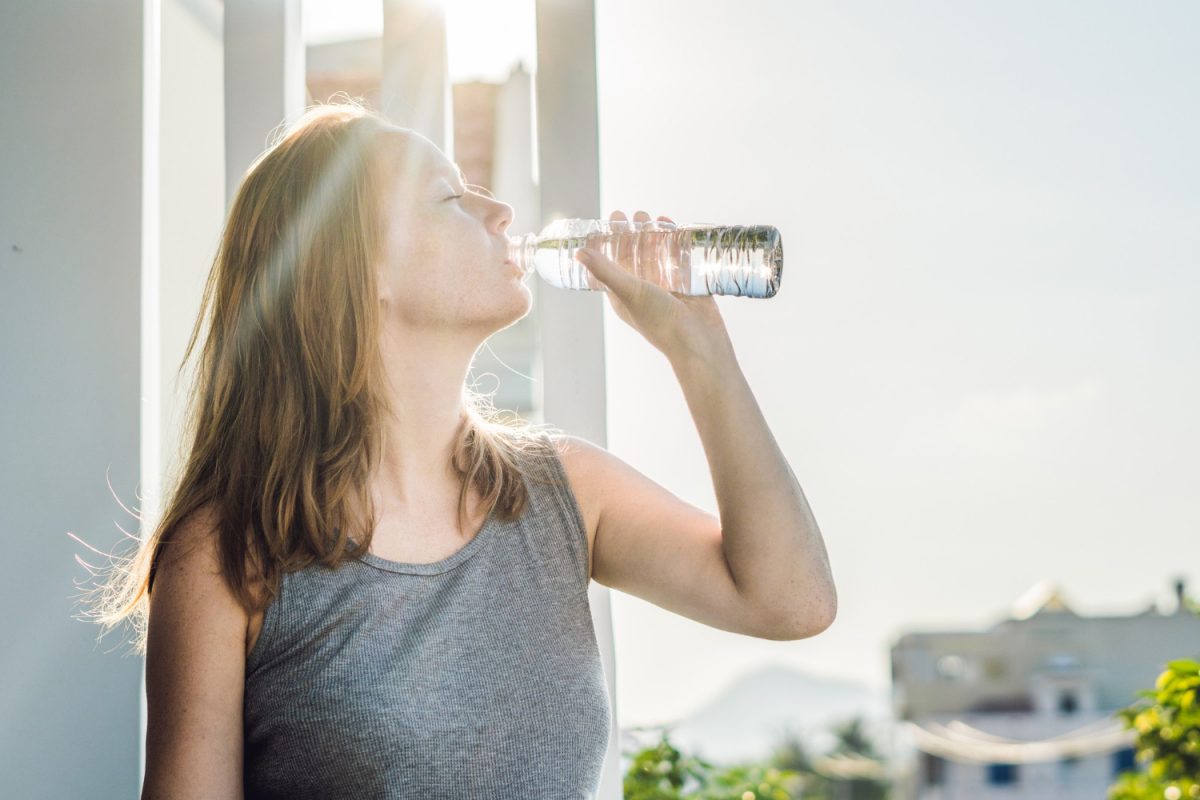
Water is the main component of our body, but it should also be included in our daily nutrition. It is worth checking whether we drink the appropriate amount of it, as well as what are the symptoms of dehydration. You will learn this information from this article.
When consuming water, it is important to check what our daily balance is. Water can be found in many foods, including fruits and vegetables. However, this amount is not fully sufficient.
The calculation of the daily water balance is simple: simply multiply your body weight by 0.03. This means that you need to provide 30 millilitres of water per kilogramme of body weight.
Another way is to calculate the amount of water based on calories consumed – 1 milliliter of water equals one calorie. For example, if you eat 2000 kcal, at a minimum you should drink 2 liters of water.
These are simplified calculations because there are many other factors that come into play to increase water requirements.
These include:
If it is hot outside and the thermometer inexorably indicates around 40 degrees Celsius, then it will be necessary to drink up to 4 liters of water a day. Thanks to this we will be able to cool down, as well as balance the level of electrolytes that are lost through sweating.
The same is true for physical activity – after an hour’s workout, it is required to drink at least a liter of water at certain intervals.
People affected by diabetes or metabolic diseases should also drink more – ideally increase the amount of fluids to 3.5-4 liters.
Coffee drinkers and tea lovers should also reach for water more often. Caffeine and theine strongly dehydrate the body and also act as diuretics. That is why Italians add a glass of water to every cup of espresso. It’s a good idea to follow their example and reach for a bottle of water after a cup of coffee, preferably one with high mineral content.
According to the WHO, men should drink around 3 liters of water a day. Women only need 1.5 to 2 liters every day. Statistically, men have a higher body weight and are more likely to be physically active, hence the distinction.
Water will be the best way to hydrate yourself. It has the most important minerals for us, including potassium, sodium, magnesium and calcium. Thanks to them, the nervous system can function properly. It is estimated that we absorb as much as 60% of water from drinks and only 30% from food. The body also obtains water as a result of metabolism, but this amount is negligible, only 10%.
Many people do not like water because it has practically no taste. So they reach for juices and other drinks, such as isotonic drinks. Unfortunately, they will not be able to provide adequate hydration.
First of all, many such products contain a lot of harmful and fattening sugar and artificial colors. Freshly squeezed juice, e.g. from an orange, is a solution, but it will not provide the body with the right amount of minerals. Isotonic drinks can be consumed from time to time, e.g. after a hard training. However they should not replace water.
>> See also: Filtered or tap water – which is healthier?
A good choice is mineral water which contains various types of minerals and is additionally enriched with them. Its slightly cheaper equivalent, spring water, may flush out these components from the organism and does not have such positive influence on our body and well-being.
It is worth changing water from time to time and checking its composition.
Watermelon has a high water content, as much as 90%. Additionally, it is low in calories and has fibre, vitamins C, A and magnesium. It is an important mineral for us, which positively affects, among others, the nervous system.
Melons have a similar amount of water, and in third place come citrus fruits and apples, also rich in valuable fibre.
If you have a heart condition or kidney problems, be sure to ask your doctor about your individual water needs. You may find that you need a little less to function on a daily basis.
Źródło zdjęcia: Designed by Freepik